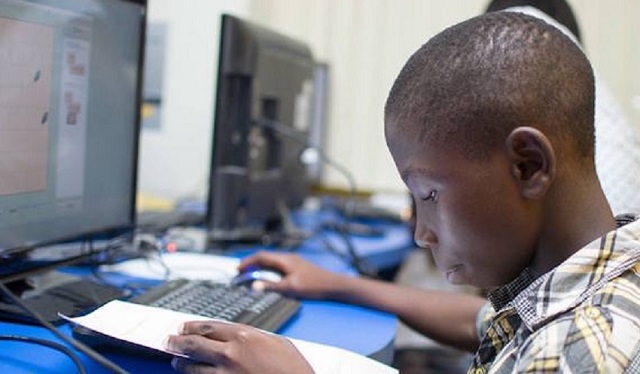
Education ministry needs to conduct enough studies to inform the local education digital needs of the country
Kampala, Uganda | THE INDEPENDENT | The Ministry of Education and Sports has been cautioned against jumping onto the digital learning tide before setting up the required Information Technology basics.
With the outbreak of the COVID-19 pandemic that saw the closure of the traditional classrooms, players- mostly educational institutions in the education sector have utilized various platforms to ensure learning continuity, many of them using digital solutions to bridge the gap.
Zoom, WhatsApp, broadcast media, Microsoft teams and a series of other virtual corresponding tools have been used to ensure that learners are connected to their teachers during the lockdown. However, experts say that although the COVID-19 induced school closure has helped the country to wake up and face the realities and needs of the education sector in the 21st century, the haste with which digital learning is handled might kill the idea in its infancy.
Professor Jude Lubega, the Vice-Chancellor of Nkumba University notes that the ministry needs to conduct enough studies to inform the local education digital needs of the country, develop guiding policies, laws, and quality assurance mechanisms for regulation, and offer direction for the desired digital agenda.
Professor Lubega, a specialist in Information Technology and e-learning made the remarks during the ongoing teacher education symposium convened by the teacher instructor education and training department under the theme; a digitally competent teaching force for the 21st century. Lubega added that the country also needs to find out the readiness of the educational institutions at all levels to adopt ICT in education and the availability of relevant content.
He further points out that Uganda has a poorly developed ICT infrastructure, high bandwidth costs, an unreliable supply of electricity, and a general lack of resources to meet a broad spectrum of needs which must all be addressed before the rush towards the digital learning tide.
Dr Joyce Ayikoru Asiimwe, an associate professor of Foundations of Education at Kyambogo University, also highlights that before the digital learning nod takes the stage, there is a dire need to prepare the teachers. Quoting available data from several research findings, she says the ability for Ugandan teachers, teacher educators, and trainees to use ICT in education is still very low.
Dr Ayikoru says teachers who have basic ICT skills and running simple programs like Microsoft Word, are estimated to be lower than 32 percent in the country, while those who have competencies to use information technology to teach are not more than 16 percent. She says that the Ministry of Education should make a deliberate move to integrate ICT courses into teacher education to solve the digital gap.
Education Technology and Curriculum expert Dr Stephen Ndawula says that there is a need for the government to review several programmes that were introduced to facilitate ICT in education in Uganda even before COVID-19.
“This is not the first time we are talking about this. COVID-19 has just hyped the idea of ICT solutions in education. We have had many projects which have been introduced and have failed to work. There must be reasons why these projects are failing and the same reasons might affect the new solutions in the long run,” says Dr Ndawula.
He pointed out the Teacher educator e-learning system- TEELS which he says was designed to offer among other things a learning management system to different institutions in 2014 but was abandoned as soon as the donor pulled out.
Meanwhile, Education Minister Janet Museveni also expressed concern over the safety of learners while integrating information technology in learning. According to her, there is a need to put up a safety mechanism to protect learners from harmful and irrelevant content.
Alex Kakooza, the Ministry of Education Permanent Secretary notes that the ministry is currently preparing an ICT policy to guide the digitalization of education which intends to give answers to several concerns raised by several stakeholders. He however adds that they still need a lot of input so that they come up with the appropriate ideas.
*****
URN
 The Independent Uganda: You get the Truth we Pay the Price
The Independent Uganda: You get the Truth we Pay the Price



